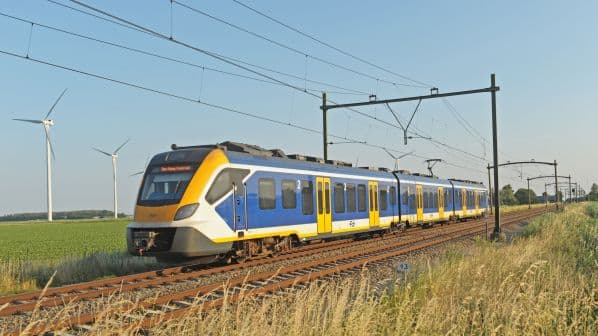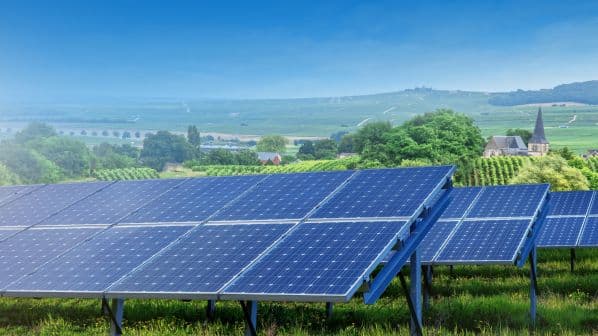EUROPEAN high-speed operator Eurostar has announced that it is working to source 100% of the energy that powers its trains from renewable sources by 2030.
As set out in the company’s first sustainability report, covering 2023, 100% of the traction energy used by Eurostar in the Netherlands is already generated by wind power, sourced through power purchase agreements (PPAs) negotiated by Dutch infrastructure manager ProRail.
In Britain, 40% of the traction energy used on High Speed 1 has come from wind power since 2023. The first sustainable PPA for wind to provide 20% of the total was activated in 2022 for a 10-year period, with a further 20% activated last year.
Eurostar says that additional solar power generation is planned by 2025, which would take the total proportion of renewable energy used in Britain to 80%.
Eurostar signed a memorandum of understanding (MoU) with Belgian infrastructure manager Infrabel in February 2024 to study the use of solar power in sourcing traction energy.
To facilitate its work, Eurostar recently became the first rail company to join the RE100 alliance of companies committed to sourcing 100% of their energy from renewable sources.
“Eurostar now has the opportunity to draw on a global network of over 400 companies as it works towards 30 million journeys a year powered by 100% renewable electricity by 2030,” says Mr Ollie Wilson, head of the RE100 Climate Group.
“We encourage other businesses in the rail sector to follow Eurostar’s lead and commit to 100% renewable electricity.”
“This is a deliberately ambitious target," says Eurostar CEO, Ms Gwendoline Cazenave. “Eurostar wants to use its brand and commitment to accelerate change across the sector.”
“To achieve our goal, we work closely together with our partners in each of our markets, and we encourage regulatory support for the rapid deployment of new renewable energy projects.”
“Today, the transport sector accounts for 25% of European greenhouse gas emissions, making sustainable high-speed rail a key solution to a quarter of Europe’s climate problem.”



